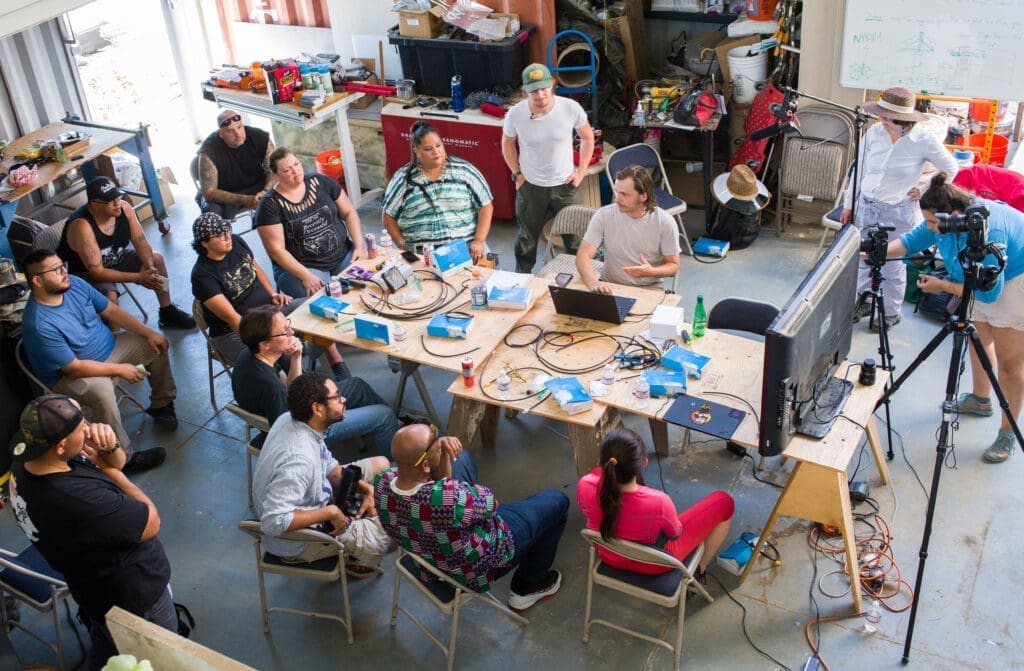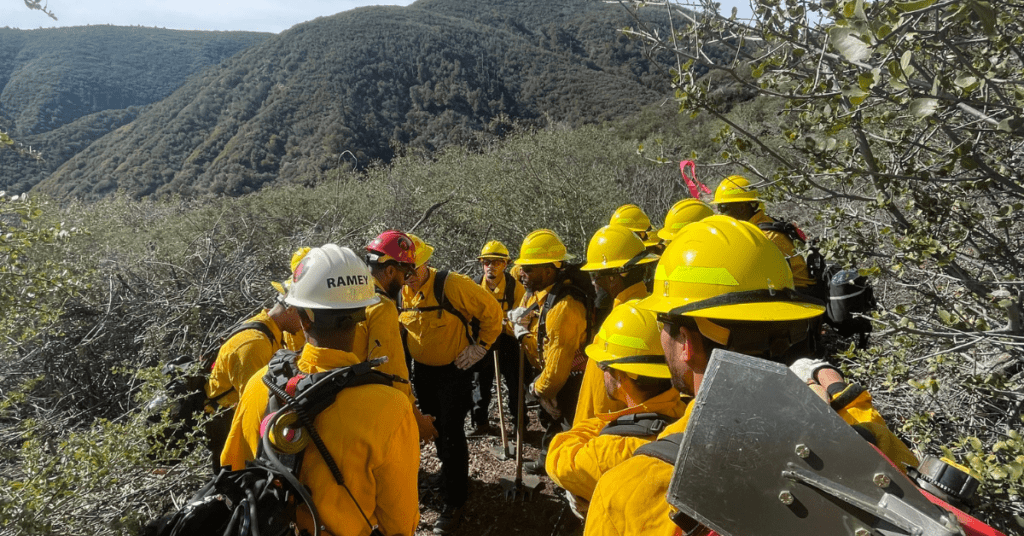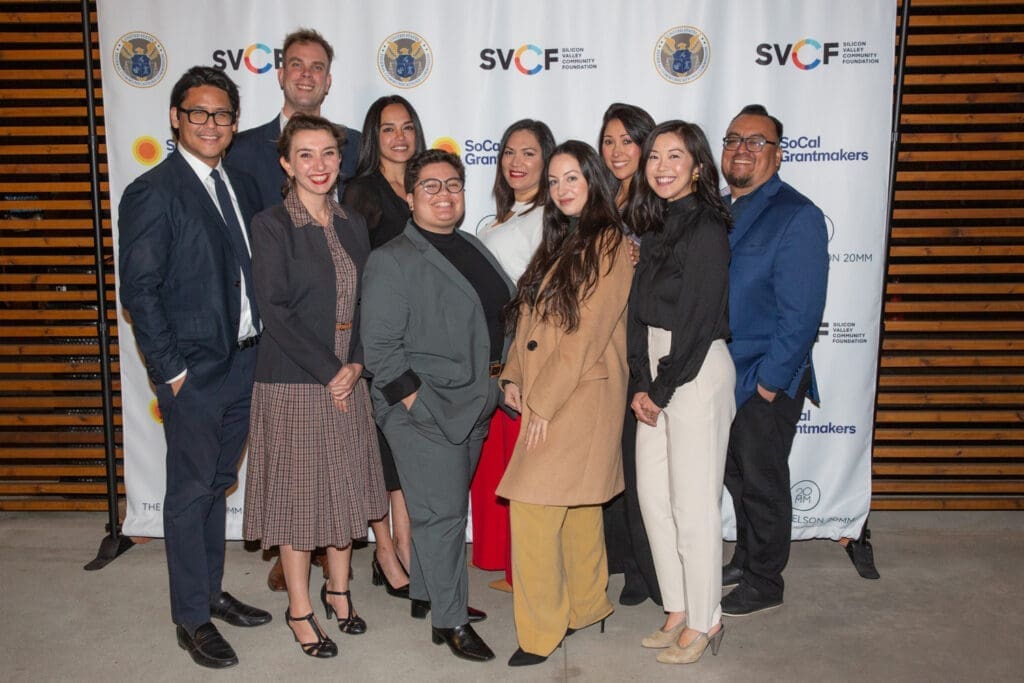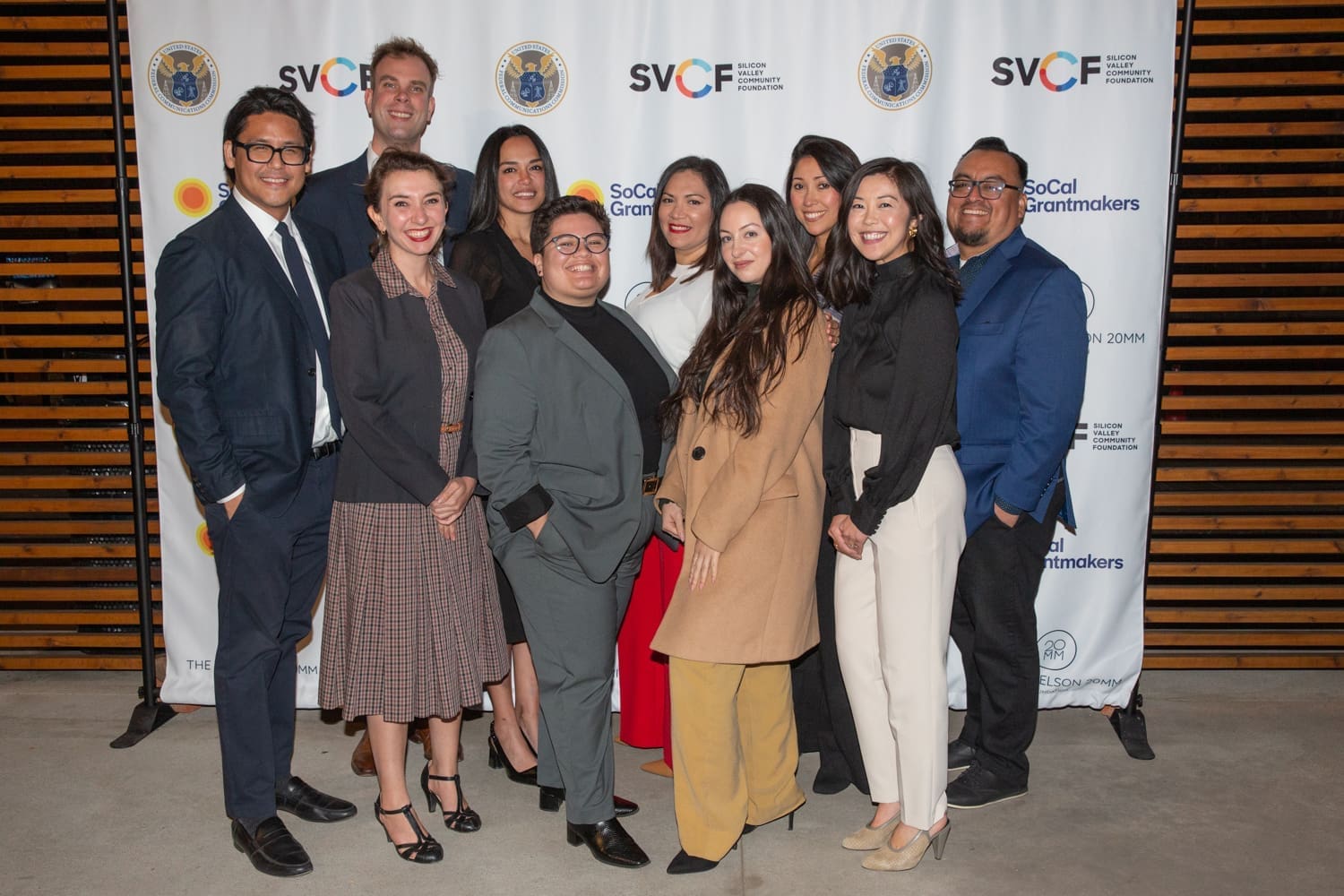Michelson 20MM has emerged as a leader in the fight for textbook affordability. Now it’s working toward digital equity and smart justice for all
This story originally appeared in the 2023-2024 Michelson Philanthropies Impact Report.
Dr. Gary K. Michelson understands the value—and cost—of a college education. As an undergraduate, he often worked two jobs to put himself through Temple University and later medical school. His education became the foundation of a boundless career as an orthopedic spinal surgeon, inventor, and philanthropist—and fueled a commitment “to leave the world a better place than we found it.”
In 2010, after learning that students at Santa Ana College had to suspend or outright abandon their pursuit of a college degree because they couldn’t afford the cost of textbooks, Dr. Michelson contributed his own funds toward a textbook scholarship fund. But his efforts didn’t stop there. He founded a nonprofit, Twenty Million Minds, pouring $1.5 million of his own money into OpenStax, a nonprofit educational technology initiative that publishes free, openly licensed textbooks.
A decade after its founding, OpenStax is used by 70 percent of all colleges and universities in the United States. While Twenty Million Minds has since rebranded as Michelson 20MM and expanded to include impact investing, grantmaking, and advocacy, Dr. Michelson remains steadfast in his original commitment to make college more affordable and accessible to all.
“We’ve been a consistent voice and expert in the space for over a decade—I think we understand the industry better than most,” says Phillip Kim, CEO of Michelson 20MM and managing director of Michelson Impact Ventures. “Unfortunately, that means that we also understand the publishing industry’s long-term and often hidden intentions.” What might seem like a victory on the surface— the industry’s move to offer a flat-rate, subscription-based textbook package—“is actually setting up a problematic universe of publisher-controlled systems,” Kim says. “We will continue to monitor that vigilantly. But the existence of OpenStax has created an additional check on the entire publishing industry and helped suppress prices across the board.” In response to what he calls “the racket … that is the textbook industry,”
California Governor Gavin Newsom committed $115 million in 2021 toward the state’s 116 community colleges to implement a Zero Textbook Cost (ZTC) degree pathways program that largely relies on open educational resources (OER). Now comes what is arguably the hard part: implementation.
“Implementing a $115 million ZTC program across the largest system of higher education in the country is a huge undertaking, so we have tried to be a consistent and knowledgeable resource for the Community College Chancellor’s Office,” Kim says. “OER has dozens of experts that have been immersed in this work for decades,” he continues. “They have learned some very hard lessons, and from that, they have begun to cultivate best practices and share their wisdom on facilitating a program like this.”

Digital sovereignty in action: Tribal leaders from across California learned about establishing and maintaining their own broadband networks at the Tribal Broadband Boot Camp in July 2022. Funded by Michelson 20MM and hosted by the Institute for Local Self Reliance, the boot camp welcomed members of the Hoopa Valley Tribe, Yurok Tribe, and Navajo Nation.
Connectivity as a Fundamental Right
At the outset of the pandemic, with the abrupt transition to remote learning for millions of students in California, the issue of digital equity quickly came to light. “We’ve known for years about the problem of digital redlining in low-income neighborhoods and communities of color,” Kim says. “There are studies that showcase significant price discrepancies where the same internet service in a predominantly Black and low-income neighborhood is priced higher and on different terms than the same offering in a predominantly white, more affluent neighborhood. And we still have significant percentages of the population that remain disconnected.”
Connectivity is “a fundamental right,” Kim continues—and at the outset of COVID-19, Michelson 20MM joined with other groups in facilitating some short-term solutions, such as getting 20,000 laptop devices into the hands of community college students. “But similar to how we evolved our thinking in the textbook space, that ‘Band-Aid’ is not where we wanted to engage long term,” he says.
Noting that there is more than $65 billion in federal and state funding earmarked toward addressing the digital divide, “We did not want those dollars to reinforce the broken broadband system,” says Miguel Leon, director of programs and strategic initiatives. “We wanted to challenge and change the industry narrative that nearly all Californians are connected to broadband. To do that, we built capacity in nonprofit ecosystems so that the voices of historically digitally redlined communities were being heard.”
The narrative change includes viewing broadband as a public utility, a human right, and a social determinant of health. Nowhere was this more evident than in tribal communities. During the pandemic, people living on tribal lands were dying at rates nearly double the national average. “Isolated and disconnected, many indigenous communities could not access the telehealth services to which we all have grown accustomed,” Kim says.
The Hoopa Valley Tribe secured $65 million to put toward broadband investments for their community.
In June 2022, Michelson 20MM launched the Digital Equity in Tribal Communities Project. Michelson 20MM partnered with the Institute for Local Self Reliance, which convened nearly 50 leaders from four tribes for a series of boot camps. The boot camps were designed to provide the knowledge and tools needed to build and maintain broadband access while also forging connections among attendees and developing a community of practice. Equipped with the knowledge and expertise gained through the boot camps and established network, the Hoopa Valley Tribe secured $65 million to put toward broadband investments for their community. “Similar to open publishing, we look for this sort of scalability in our work, where a catalytic seed investment can help position deserving organizations to go after tens of millions of dollars,” Kim says.
Bringing IP Into the Classroom
The owner of more than 950 patents, Dr. Michelson, has long championed the value of IP protections. In 2016, he established the Michelson Institute for Intellectual Property. Housed at Michelson 20MM, Michelson IP provides free intellectual property educational resources for inventors and entrepreneurs, with a focus on underrepresented communities. Michelson IP produces free, high-quality IP resources, including an introductory college textbook that makes patents, copyright, and trademarks understandable for students and non-lawyers. Michelson IP also developed an animated video series that breaks down the content into digestible video shorts. Its online Udemy course—which makes the basics of intellectual property accessible to all— passed the 24,000-learner mark in 2022. In addition, course learners are eligible to receive a certificate of completion from the National Academy of Inventors.
In 2021, Michelson IP also partnered with Historically Black Colleges and Universities (HBCUs) to launch the HBCU IP Futures Collaborative, bringing IP curricula, resources, and $175,000 in grants to participating institutions. The following year, one HBCU student who received IP education through the Collaborative invented a fast food automation machine and has since filed for a patent with the United States Patent and Trademark Office.
In recognition of his “extraordinary leadership in advocating for the value of intellectual property to stimulate the progress of innovation,” the Intellectual Property Owners Education Foundation awarded its annual IP Champion honor to Dr. Michelson in December 2022.
Smarter Justice, Better Outcomes

Supported by 2020 and 2021 Michelson Spark Grants, the Forestry and Fire Recruitment Program prepares currently incarcerated firefighters for long-term employment in the fire services.
More than half of people released from prison in America are unemployed within a year of re-entering society. Studies also show that approximately two-thirds of individuals released from prison likely will be rearrested within three years of release. These sobering statistics and the realization that poor people and communities of color have been disproportionately impacted by mass incarceration in the United States led to the creation of the Smart Justice Initiative.
“We see clear racial disparities in our justice system, with Black and Latinx communities over-represented and impacted,” says Mayra Lombera, chief operating officer at Michelson 20MM. “Our legal system has created a group of second-class citizens— locking out people of color from mainstream society and relegating them to the lowest rungs of the employment and education ladders.” A key component of the initiative includes expanding access to post-secondary education for both currently and formerly incarcerated individuals. “We’ve been focused on identifying best practices that can support individuals on a prison-to-college path,” says Lombera. “Last year, we convened a think tank of experts to help us identify how to better tackle the unique challenges that prevent incarcerated and formerly incarcerated scholars from beginning or continuing their education.”
Access to education has been proven to have a positive impact on reducing recidivism rates. Studies also have shown that the children of incarcerated individuals who are enrolled in education programs are less likely to be imprisoned themselves. “It just shows you how education can change the multigenerational trajectory of entire families,” Kim says.
In addition to educational programs, Michelson 20MM seeks to foster workforce pathways for justice-impacted individuals. In 2022, more than 7,500 wildfires were recorded in California, covering more than 360,000 acres. To fight wildfires, the state turns to incarcerated laborers, who make up more than 30 percent of the state’s wildland firefighting crews. But when these men and women return home from prison, continuing their careers as firefighters has proven difficult. “When incarcerated firefighters are released, their service is not appropriately recognized, and they are in no better position to pursue a career in firefighting despite their training and experience in fire camps,” Kim says. The Michelson Center for Public Policy endorsed the Formerly Incarcerated Recruits Finding Employment (FIRE) Act of 2022 (AB 1908), authored by Assemblymember Brian Maienschein (D-San Diego), which would allow incarcerated firefighters to obtain the necessary certifications and proof of work experience that can improve their employment prospects upon release.
“To ignore the countless hours of training, field experience, and service on the perilous frontlines— and deny them a hard-earned pathway to certification and a meaningful career—is unduly harsh and discriminatory,” Dr. Michelson wrote in February 2022. “It is also incredibly shortsighted given California’s dire need for trained, experienced, and courageous professionals willing to risk their lives to protect us.”
The Year Ahead

Phillip Kim, left, and members of the Michelson 20MM team at the 10th installment of the foundation’s “Connecting California: Solving the Digital Divide” learning series. The town hall was titled “California and the FCC Unite to Eliminate Digital Discrimination.”
“If there is a throughline to the work of Michelson Philanthropies, it’s investing in solutions that honor the communities we seek to serve and brings us back to our mantra of ‘making life less unfair,’” Kim says. “The $115 million invested by Governor Newsom remains a top priority for us,” he adds. “We provide resources and expert guidance to exert whatever influence we can, but we don’t control anything. We want to make sure that at the end of the year, we’ve done absolutely everything we can to make sure that those dollars were used in the best way possible.”
With a potential recession clouding the economic outlook, he notes, “There are many exceptional founders and companies—particularly that have a significant social impact dimension—that may not survive an economic downturn. They’re not going to be the easiest candidates for funding in this environment just because of the contraction. And the first ones that go will be those companies that are focused equally on doing good as they are on generating volume. “Similarly, we expect that companies that are female-founded or have a founder of color will also be the first ones to suffer from the contraction.” Nearly 70 percent of Michelson Impact Ventures’ portfolio companies have a diverse founder, Kim notes, “and we will double down on that dimension and continue to support them during this time.”
In recent years, Lombera says, “Michelson 20MM has honed its skills in bringing together all of these different levers—from grantmaking and investing to policy advancement and advocacy work—to effect change across a range of entrenched systemic issues. In the next five years, I see Michelson 20MM even more cohesively and effectively using all of those levers for the greater good. It’s the equity work we are deeply committed to—and we’re in it for the long haul.”
Get the latest news from Michelson Philanthropies. Sign up for our newsletter today!

